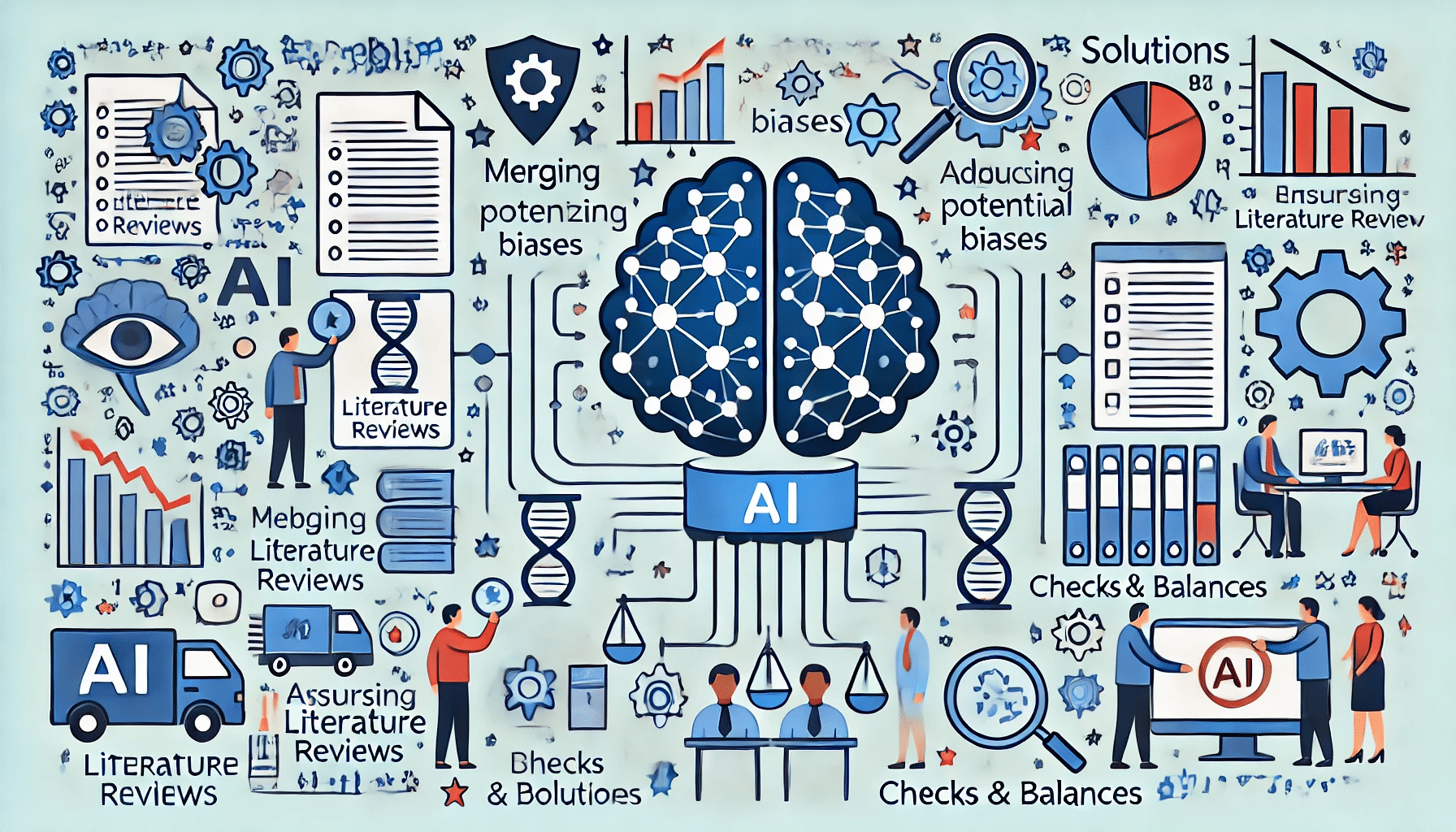The literature review lays the groundwork for a successful marketing plan by summarizing previous research and pointing out any gaps that need to be filled with a fresh approach. A literature review is now a much more streamlined and precise procedure, made possible by the rise of AI.
In this post, we’ll take a look at how AI can help with literature reviews, and more specifically, how to use AI tools to write them so you can put up a marketing strategy. Using an AI literature review writer, such as the Literature Review myStylus, or similar online AI review generator can significantly enhance the efficiency and accuracy of this process.
The purpose of a literature review is to compile and synthesize all of the previous research on a certain subject. Market trends, customer behavior, and competitive landscapes may be better understood within the framework of marketing strategy. Manually searching, reading, and compiling pertinent information is a time-consuming and laborious process that has long been associated with literature reviews. An exhaustive search of academic databases, careful examination of sources, and a logical synthesis of results are essential components.
Applying AI to the Craft of Literature Reviews
Researchers and marketers have seen a dramatic shift in data collection and analysis practices due to the introduction of AI into literature review authoring. AI technology simplifies the procedure, increasing its speed, accuracy, and thoroughness. Some major benefits of using AI to literature:
Rapidity and Effectiveness
Artificial intelligence algorithms can swiftly sift through mountains of data from a variety of sources, such as scholarly publications, books, and web articles.
The use of AI algorithms for automated summarization makes it possible for academics to understand complex texts without having to read each word.
Improving Precision and Coverage
Unlike human analysts, AI systems can spot patterns, trends, and insights.
Artificial intelligence systems are very accurate, which means that human mistake in data extraction and interpretation is minimized. AI has the ability to integrate data from several sources, guaranteeing a more thorough evaluation.
Managing and Organizing Data
A more streamlined review process is possible because to AI’s ability to merge disparate data sources into a single database.
- Organization of Data Systematically: AI aids in the systematic classification and organization of data, making it easier to access and reference.
- Efficient Data Storage: Tools driven by AI provide efficient ways to store and retrieve massive amounts of data.
Maximized Analytical Power
AI-powered systems are capable of doing extensive research, including meta-analyses and thematic analyses, which allow for the extraction of more nuanced findings.
Artificial intelligence has the ability to generate data visualizations like charts and graphs, which greatly enhance the comprehension and presentation of findings.
Saves Time
Artificial intelligence saves researchers a lot of time and effort by automating mundane but necessary activities.
Modification and Individualization
Artificial intelligence may be taught to look for certain terms and subjects that are pertinent to the study. AI technologies can learn from the researcher’s choices and get better with time, allowing for more tailored outcomes.
AI takes advantage of these features to make the literature review process easier and faster, which in turn helps with the creation of better marketing strategies.
Problems and Solutions with AI for Writing Literature Reviews

There are a number of obstacles and restrictions that need to be considered despite the fact that AI provides substantial benefits when it comes to producing literary reviews. Possible biases in AI systems are a big concern. Incomplete or biased findings may be produced by these technologies because of the biases that are inherent in their training data. This poses a special challenge in scholarly study, where objectivity and thoroughness are of the utmost importance.
Artificial intelligence also has problems with nuances and context. Artificial intelligence is great at handling massive amounts of data and finding patterns, but it can’t always understand the nuances and complexity that human researchers can. The complexities of language and interpretation, or subjects that need a thorough comprehension of context, might make this shortcoming shine out.
The input data must be of high quality and relevant for AI systems to work well. Results could be misleading or incorrect if the data used is of low quality or comes from unrelated sources. Consequently, for AI technologies to work at their best, it is crucial to feed them relevant, high-quality data.
Guidelines for Effective AI Literature Reviews
Integrating AI with human knowledge is crucial for getting the most out of AI while producing literary reviews. Human researchers should supervise the key components of interpretation and synthesis, while AI may handle repetitive and laborious activities like data scanning and early analysis. The synergy between the two types of intellect makes the most of their respective capabilities.
When using AI for literature reviews, it is crucial to prioritize ethical issues and data protection. Researchers have a responsibility to safeguard sensitive information and apply AI in an ethical manner that does not compromise the research process. Ethical standards, openness about AI use, and strong data protection procedures to protect processed information are all part of this.
Better and more responsible use of AI in literature review writing is possible if these issues are addressed and best practices are followed. This will result in research that is both efficient and accurate.
What an Effective Literature Review Can Do for Your Marketing Plan
The backbone of any effective marketing plan is a thorough literature analysis. It delves deeply into the current body of research, illuminating both the gaps in our knowledge and the important findings that may be used for future strategic gains. Your marketing approach may be greatly improved with a well-written literature review:
| Decision-Making with Knowledge
In order to provide a firm foundation of knowledge, a comprehensive literature review gathers and synthesises previous research. Because of this, marketers are able to base their plans on confirmed knowledge rather than assumptions, which helps them make better judgments. |
Filling Up Research Deficits:
Research gaps may be filled by literature evaluations, which in turn indicate regions ripe for new ideas and approaches. Marketers may use these spaces to their advantage by introducing new ideas or enhancing current products. |
|---|---|
| Tracking Current Market Tendencies
New trends and changes in customer behavior might be seen by marketers by perusing recent research and publications. By being aware of these tendencies, one may proactively plan strategies to meet the needs of the market both now and in the future. |
Assessing Market Conditions:
Examining the market leaders and other relevant benchmarks is an integral part of any thorough literature assessment. Marketers may use this data to better position their products and services by identifying competitive advantages and improvement opportunities. |
| Strengthening Reputation:
The credibility and persuasiveness of a marketing plan are enhanced when it is backed by a thorough literature assessment. Stakeholders and clients can see that you have a firm grasp of the industry and are dedicated to doing in-depth studies. |
Deciphering Buyer Behavior:
Research on customer tastes, attitudes, and habits may be gleaned via literature evaluations. In order to create effective targeted marketing strategies, this knowledge is crucial. |
In conclusion, a thorough knowledge of the market, customers, and competitors may be gained by a well-done literature study, which in turn enhances a marketing plan. More successful and impactful marketing is the result of tactics that are both unique and based on thorough research.



